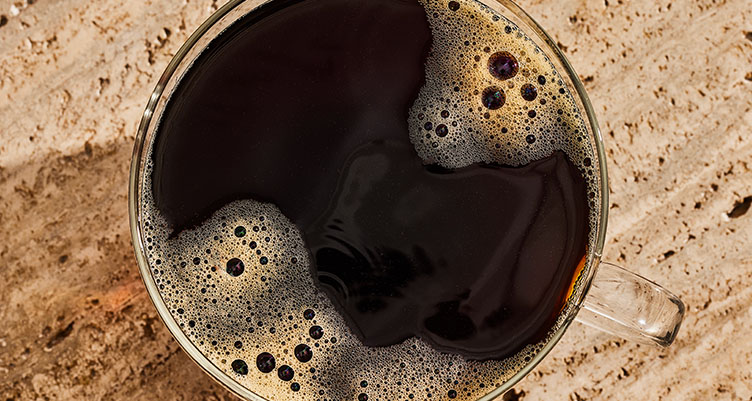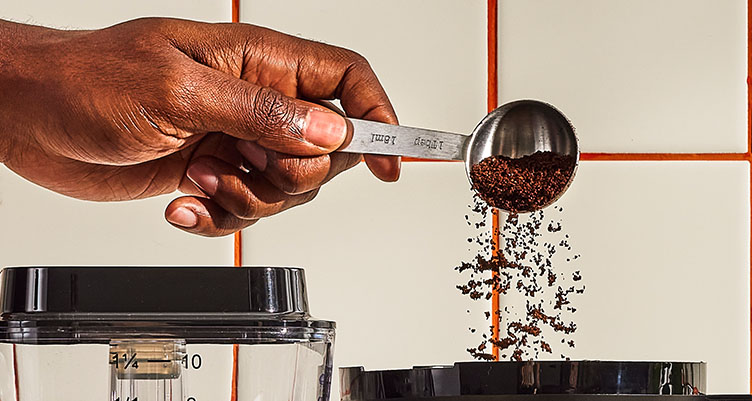Is Coffee Good for You? What Science Says About Your Favorite Brew

- Besides the great taste, coffee is a powerful source of antioxidants. This may help protect against diabetes, heart disease and Alzheimer’s.
- Coffee contains caffeine, a powerful stimulant. Drinking too many cups of coffee can cause side effects. This includes jitteriness, heart palpitations and trouble sleeping.
- Bulletproof coffee helps supercharge your morning. It can help support energy and keep you fuller for longer.
For many, a coffee morning routine is the most cherished form of self-care. That first sip of morning brew doesn’t just awaken the mind. It also provides a much-needed jolt of energy and starts the day off right.
Roughly 73 percent of Americans drink coffee daily.[1] But is coffee good for you, health-wise? Research suggests that coffee is loaded with antioxidants and may lower your risk of type 2 diabetes and heart disease.[2]
Keep reading for the full dish.

Benefits of Coffee
That daily cup isn’t just brimming with robust flavor. It’s also loaded with potential health benefits that put other drinks to shame.
This includes:
Coffee supports energy
That mid-day slump has nothing on coffee. Even small doses of caffeine have been shown to boost energy levels. Coffee contains caffeine, a stimulant that increases activity in the brain and the central nervous system.[3]
Coffee helps you fight fatigue. It does this by blocking the receptors of sleep-promoting chemicals, such as adenosine. Meanwhile, coffee increases some of the feel-good neurotransmitters, such as dopamine. This keeps you feeling alert and energetic.
Coffee may reduce the risk of Alzheimer’s and Parkinson’s
If light roast is your drink of choice, you may want to turn to the dark side. According to a study, one of the potential benefits for dark roast coffee is that it may reduce the risk of Alzheimer’s and Parkinson’s. These are cognitive diseases that severely affect a person’s brain and how it functions.
Researchers at the Krembil Brain Institute in Toronto found that dark roast coffee contains a compound called phenylindane. Phenylindanes prevent beta amyloid and tau. These are two protein fragments that can cause Alzheimer’s and Parkinson’s when they bond together.[4]
Coffee supports brain performance
Drinking coffee gets those brain juices flowing. Several studies have found that coffee may increase mental alertness. It may also improve long-term memory and keep the brain fit as you age.
A 2017 study followed 676 senior men for 10 years. The goal was to see if coffee had any impact on preventing cognitive decline. They found that the men who drank coffee daily had less of a cognitive decline than the men who didn’t drink coffee. The greatest brain benefits were found in those who drank three cups of coffee per day.[5]

Potential Risks of Coffee
Is coffee bad for you?
Well, when it comes to coffee, there is too much of a good thing. Since coffee contains caffeine—a stimulant—one too many cups may leave anyone feeling stir-crazy.
Some of the negative side effects you may experience include[6]:
- Anxiety
- Headache
- Increased heart rate
- Insomnia
- Dizziness
- Dehydration
- Irritability
While coffee is safe when consumed in low-to-moderate amounts, side effects can occur when you consume too much caffeine.[7]
If you’re tired of dealing with these negative side effects, you might be ready to make the switch to Bulletproof coffee. It provides everything you look for in coffee: great taste, increased energy and fewer cravings, and none of the stuff you don’t want. This includes sugar, processed creamers or sugars—two things you might find in regular coffee.
Bulletproof coffee is made to exceed industry standards. When it comes to Bulletproof coffee vs. regular coffee, here are the differences you can taste with every sip:
- Bulletproof coffee only sources hand-picked coffee beans. Essentially, how Bulletproof coffee is made differs from any regular cup of Joe.
- Bulletproof coffee is thoroughly cleaned to prevent microbiological contamination (AKA mold).
- Bulletproof coffee is then roasted and tested by a team of experts who ensure that only specialty-grade coffee makes it home to you.

How Much Coffee Is Safe to Drink?
How many cups of coffee is too much? According to the FDA, healthy adults are fine to guzzle 400 milligrams a day—about four or five cups of coffee.[8]
If you’re pregnant or breastfeeding, research suggests that you should limit your daily caffeine consumption. Aim for no more than 200 milligrams per day.[9] More research needs to be done to determine a definitive amount.
Both bean type and coffee brewing methods can determine the level of caffeine in every cup.
Here’s a guide to the caffeine content in different types of coffee:
- Brewed coffee: A brewed cup of coffee (8 ounces) contains between 80 to 100 milligrams of caffeine.[10]
- Espresso: There are typically 64 milligrams of caffeine in a one ounce shot of espresso. Most lattes are prepared with two espresso shots.
- Decaf: Yes, even decaf coffee contains caffeine — about 2 milligrams.[11]
Coffee is a daily staple for many people. If you’ve ever asked, “Is coffee good for you?”, we have good news. Some of the benefits with every sip include a boost in energy, a faster metabolism and increased brain power. But since coffee contains caffeine, a powerful stimulant, drinking too much can cause side effects. These could include anxiety, restlessness and heart palpitations. The side effects of caffeine can vary from person to person.
Sticking to the general recommended daily intake can help prevent side effects. But if you’re sick of bad coffee, make the switch to Bulletproof coffee. The health benefits are reason enough to get brewing. Check out our Bulletproof coffee recipe to get you started.
Sign up for early access to sales, product launches, the latest Bulletproof news and more!



